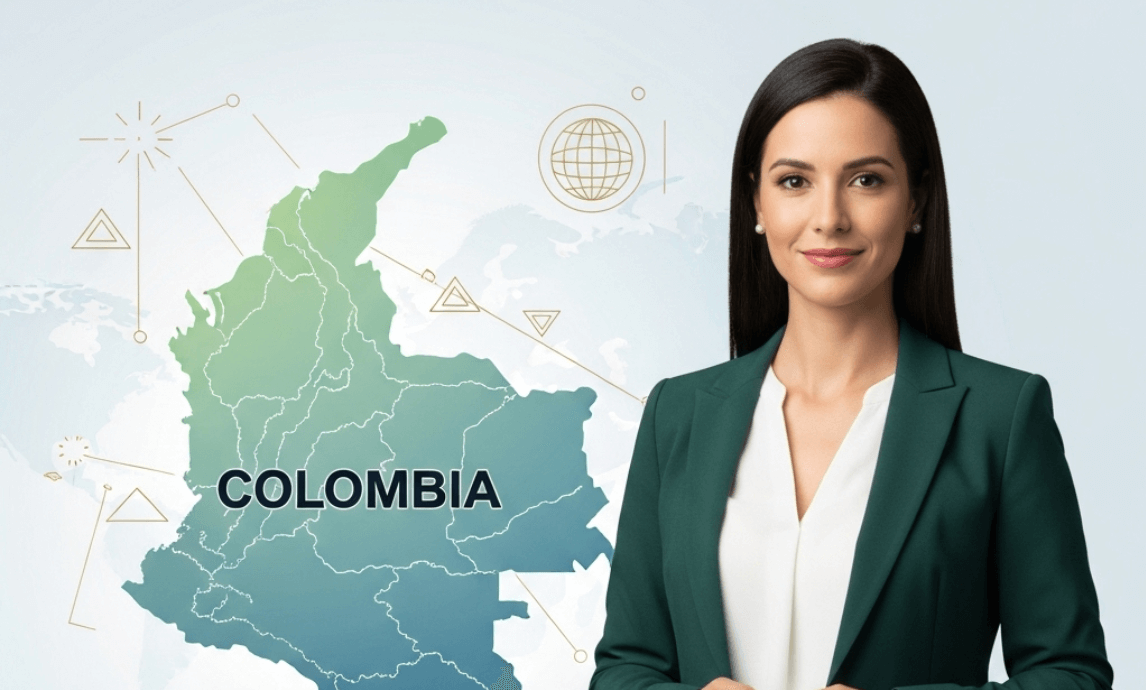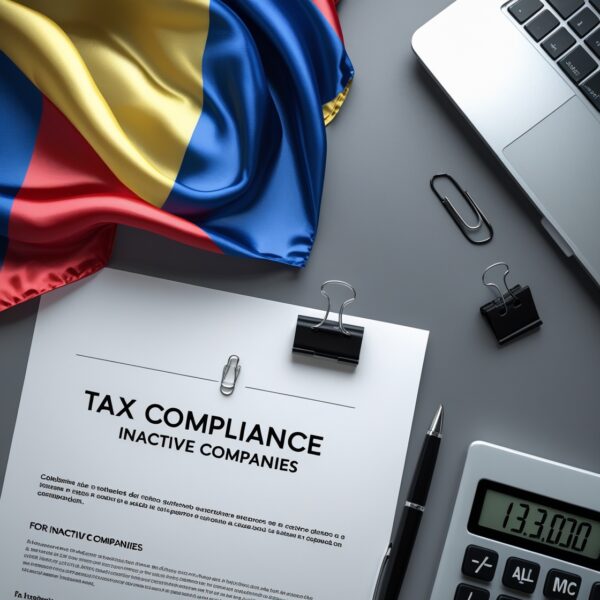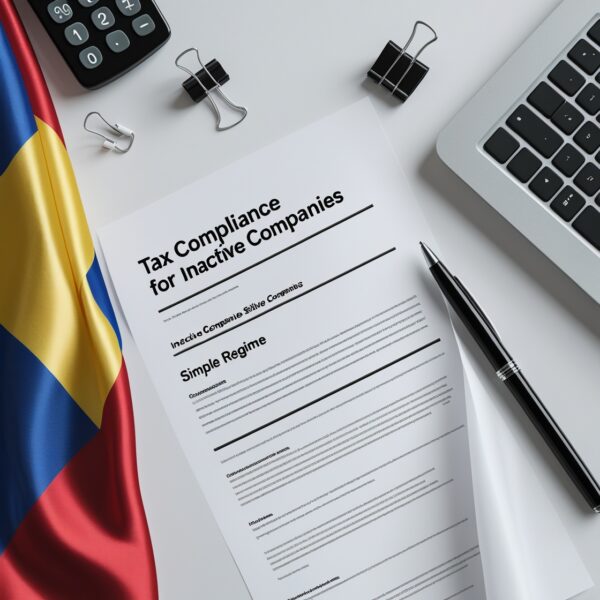Colombian Tax Residency and Your Global Occasional Gains: A Critical Guide for Foreigners

Many foreigners are drawn to the vibrant culture and growing opportunities in Colombia. Whether you’ve found your new home here, invested in the local economy, or simply spent a significant amount of time within our borders, you might have inadvertently crossed a crucial line: becoming a Colombian tax resident.
This seemingly administrative detail can have profound implications for your global wealth, particularly when it comes to occasional gains (ganancias ocasionales) from assets you might hold outside Colombia. If you’re pondering whether that recent sale of shares in London, a property in Miami, or an inheritance from your home country should be declared in Colombia, you’re in the right place.
As a Colombian tax law expert, I’m here to clarify these doubts.
1. Understanding Colombian Tax Residency: The Game Changer
First, let’s briefly reiterate the core concept that shifts your entire tax paradigm in Colombia: tax residency. Unlike immigration status, tax residency is determined by your economic ties and physical presence.
You are generally considered a Colombian tax resident if you meet any of the following criteria:
- You remain in Colombian territory for 183 calendar days or more, whether continuous or discontinuous, within a 365-calendar day period. This includes the day of arrival and departure. This count resets annually on January 1st.
- You are a Colombian national and cannot prove tax residency in another country, or have more than 50% of your income, assets, or wealth located in Colombia.
2. What Exactly Are “Occasional Gains” in Colombia?
In Colombian tax law, “occasional gains” are extraordinary, non-recurring income that comes from specific events, distinct from your regular income-generating activities (like salary, professional fees, or business profits). They typically benefit from a lower tax rate, often 15% for tax residents, compared to the progressive rates for ordinary income, but specific conditions apply.
The most common types of occasional gains for individuals include:
- Sale of Fixed Assets Held for 2 Years or More: This is the most common category. It applies to assets like real estate, shares, vehicles, or other personal property, provided they have been held for a period of **two years or longer** before their sale. If held for less than two years, the gain is typically considered ordinary income and taxed at a higher rate.
- Inheritances and Legacies: Any assets or money received as an inheritance or legacy are considered occasional gains for the recipient.
- Donations: Gifts received from third parties are also treated as occasional gains.
- Lottery, Raffle, Betting, or Prize Winnings: These are always considered occasional gains, regardless of their amount.
3. The “Problem”: Global Occasional Gains When You’re a Colombian Tax Resident
Here’s where the challenge arises for many foreign residents. You might have lived and worked abroad for years, accumulated assets, and then moved to Colombia, subsequently becoming a tax resident. If you then sell a foreign asset or receive an inheritance from overseas, Colombia’s tax net stretches to include it.
Let’s explore common scenarios:
a) Sale of Real Estate Abroad (e.g., a home in the USA, a rental property in Spain)
- Taxation: If you are a Colombian tax resident at the time of sale, the profit (sale price minus acquisition cost and authorized deductions) from a property held for two years or more, located anywhere in the world, is subject to occasional gains tax in Colombia.
- Double Taxation: This is a key concern. You might also be liable for taxes in the country where the property is located. Colombia has **Double Taxation Treaties (DTTs)** with several countries (e.g., Spain, UK, Canada, France, India, Mexico, Chile, Switzerland, Portugal, Czech Republic, Italy, Japan, among others). If a DTT exists, it will dictate which country has the primary right to tax the gain, or how double taxation is relieved (e.g., through a tax credit for taxes paid abroad).
- No DTT: If no DTT exists, Colombia offers a unilateral tax credit for taxes paid abroad on foreign-source income, but this credit is limited and often doesn’t fully offset the Colombian tax liability.
b) Sale of Shares or Investments Abroad (e.g., NASDAQ stocks, a stake in a private company in Europe)
- Taxation: Similar to real estate, if you’re a tax resident and sell shares (or other fixed investments) held for two years or more, the gain is taxable in Colombia.
- Double Taxation: Again, DTTs are crucial. Most DTTs allocate taxing rights for capital gains on shares.
- Distinguishing Occasional vs. Ordinary Income: Be very careful here. If your share trading is frequent and constitutes a regular economic activity, the gains might be deemed ordinary income, subject to higher progressive rates, rather than occasional gains. This is a point the DIAN scrutinizes closely.
c) Inheritances or Donations Received from Abroad
- Taxation: If you, as a Colombian tax resident, receive an inheritance or donation from any country in the world, it is considered an occasional gain and is taxable in Colombia.
- Recipient’s Residency Matters: The key factor is the tax residency of the recipient (you), not the origin of the assets or the residency of the deceased/donor.
- Double Taxation: While less common for inheritances than property, some countries might also tax an inheritance based on the recipient’s residency or the asset’s location. DTTs or unilateral credits can apply.
4. “I Have Doubts About This Income”: Navigating Uncertainty
It’s common to feel uncertain about specific foreign income events. Here’s a breakdown of what to consider if you’re in doubt:
- Timing is Everything: Did the gain materialize *before* or *after* you became a Colombian tax resident for that fiscal year? This is the critical first step.
- Character of the Asset/Income: Was it a fixed asset held for >2 years, a regular business activity, or an explicitly defined occasional gain?
- Documentation is Paramount: Gather all documents proving acquisition cost, sale price, dates, and foreign taxes paid.
- Currency Conversion: Convert all foreign currency amounts to COP using the official exchange rate (TRM) on the specific transaction date.
- Specific Exemptions/Deductions: Research if any Colombian exemptions apply, though they are often limited for foreign assets.
5. The Cost of Non-Compliance: Don’t Risk It
The DIAN is increasingly sophisticated and has access to vast amounts of international financial information through agreements like the Common Reporting Standard (CRS) and FATCA. Hiding foreign income is no longer a viable strategy.
Failing to declare or pay taxes on occasional gains when obliged can lead to:
- Penalties for Late Filing or Non-Filing: Significant fines based on tax due and delay.
- Default Interest: Accrues daily on unpaid taxes.
- Audits and Investigations: Leading to higher penalties and legal issues.
- Restrictions Affecting your ability to conduct business, invest, and maintain your legal status in Colombia.
Need Expert Help with Your Colombian Tax Situation?
The intersection of Colombian tax residency and global occasional gains is complex. Attempting to navigate these waters alone can lead to costly mistakes.
At our firm, we specialize in helping foreigners understand their tax obligations and optimize their financial position in Colombia. We can assist you with:
- Determining your precise tax resident status in Colombia.
- Analyzing your occasional gains and other global income sources.
- Navigating Double Taxation Treaties and foreign tax credits.
- Preparing and filing your income tax return accurately and efficiently.
We are ready to help you make clear and secure decisions, so you can focus on your life and projects in Colombia without tax worries.
Our latest and greatest
-
Colombian annual Inactive Company Tax Filing Ordinary Regime
$552.00 -
Colombian annual Inactive Company Tax Filing Simple Regime
$307.30 -
Colombian Annual Tax Filing Package
$242.00 -
Colombian Business Incorporation – Starting at $750 usd
$778.00 – $1,265.00 -
Colombian Individual Annual Tax Filing – Starting at $300 usd





